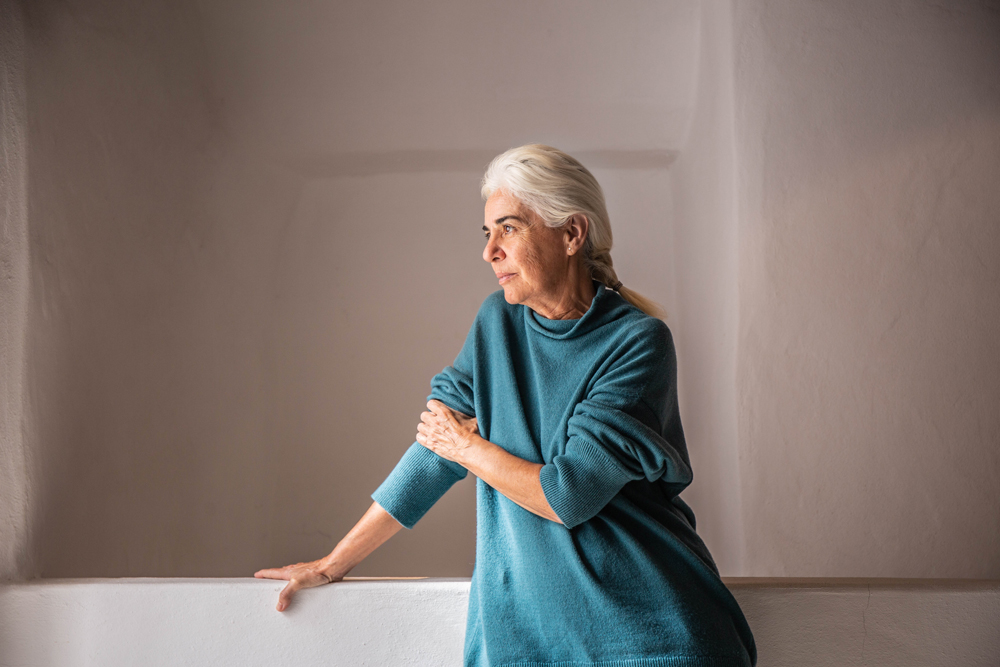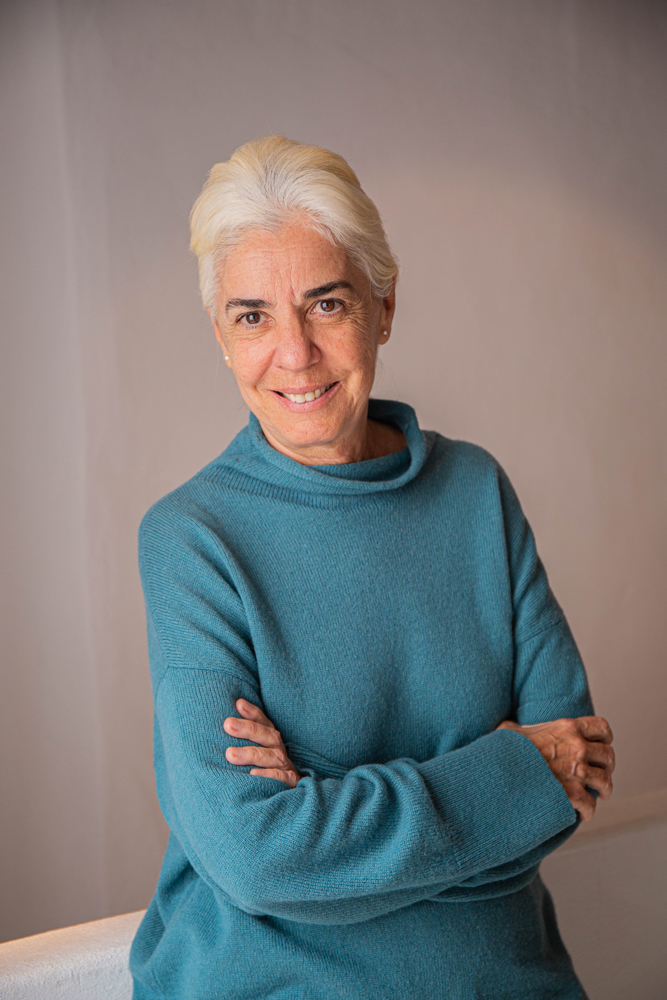Elena Ruiz, the moniker for contemporary art in Ibiza
By Laura Martinez
Photos: Maria Andreu

Everyone should be obliged to have a conversation with Elena Ruiz. She is the director of the Ibiza Contemporary Art Museum (MACE) and hails from the Castilla region in Spain, although she emanates a peaceful and Ibiza-like aura at the same time. She is a strong- willed person who arrived on the island with a mission to bring order to the local art scene. She was 30 when she started at MACE (I’m also 30 years old and I can’t even sort out my Netflix account) and although she was inexperienced, she quickly realised what needed to be done. Elena also manages the Puget Museum and the Casa Broner Museum, which are both situated in the heart of Ibiza’s Old Quarter.
How does a native of Soria end up as the director of the Ibiza Contemporary Art Museum?
“Well, I fell in love with someone from the island and I had to work to survive so I gave classes to keep me going. In 1990 I passed an Ibiza region administrative examination and I started working at the museum. It had been closed since 1984 and I didn’t have any experience, so you can imagine how hard it was to get it up and running. I was 30 and totally unprepared for this huge task, but I put my heart and soul into it.”
Where does your love of art come from?
“My parents loved Soria, my hometown. They were a very close couple, and when my brothers and I were children they’d prepare a basket with breaded fillets and hot soup and we would go out together and investigate the countryside. We roamed 19th-century palaces, medieval defence towers, Roman bridges etc. This was the time before Google so we oriented by map and took photos. My father also published articles in the Celtiberia magazine. Art has always formed a part of my daily life, but when I went on a trip to Toledo aged 14, it was then that something clicked in my head and I decided to study art.”
What has been the hardest part of your time at the museum?
“Public office means that you are constantly battling with political institutions. When you are young and full of energy you want to eat the world, before realising that there is no budget for your ambitions. I had to get a museum started without any help, but I meet wonderful people with whom I created long-lasting synergies and relationships. I learned to work hard with what I had and I finally managed to achieve my objective: the museum that we see before us.”
Not content with resting on your laurels, you went on to open the Puget Museum before converting Edwin Broner’s house into a museum. How did you come up with this superb idea?
“Edwin Broner was a German architect and painter. His widow, Gisela, lived in the house to a ripe old age, you should visit the house because it is truly beautiful.
The house is situated in Sa Penya, a neighbourhood in Ibiza that had become a bit of a slum district. The house was practically a bunker because she was so frightened of people trying to get in. Gisela didn’t have the money to continue living there so I came up with an idea.
We would buy her paintings and the money we raised would go towards paying social services for round the clock medical care.Her final years were dignified and she was very grateful for our help. I promised Gisela that the house would become a museum because it was
very well conserved. There are many photos from the 60s which helped G us to recreate everything as it was at the time. I made the museum plan
and with Ramon Ollé, the municipal architect at the time, we set things
in motion.”
Out of all the exhibitions that you have hosted in MACE, which one do you remember the most, and which remained in the pipeline?
“I have always tried to bring international artists that are connected with Ibiza, or least with the island’s values. I remember Douglas Gordon and Tobias Rehberger’s joint exhibition “After The After”, a critique of how much Ibiza’s nightlife had changed. It was very entertaining because it turned up being a performance. They kept sending me out to get beer taps and other weird stuff that only made sense once you saw the exhibition. I’m gutted that we couldn’t get James Turrell, who is something of a deity in the art world, for economic reasons only.”

In 2018 Concept Hotel Group opened the doors of Paradiso Art Hotel, which has a gallery, rotating art exhibitions in its lobby and rooms dedicated to different artists. What do you think about this way of bringing art to the tourist experience?
“I think it’s a fabulous idea, other sectors need to get people closer to art, as this helps to attract a specific type of client.” Warhol said: “Art is what you can get away with”.
For Elena Ruiz, what is art?
“It’s a mystery. It’s something that takes you from the real world and puts you in contact with something that is purely spiritual. A work of art can knock you out and shake you up. It’s a moving experience that is profoundly divine and human at the same time.”
